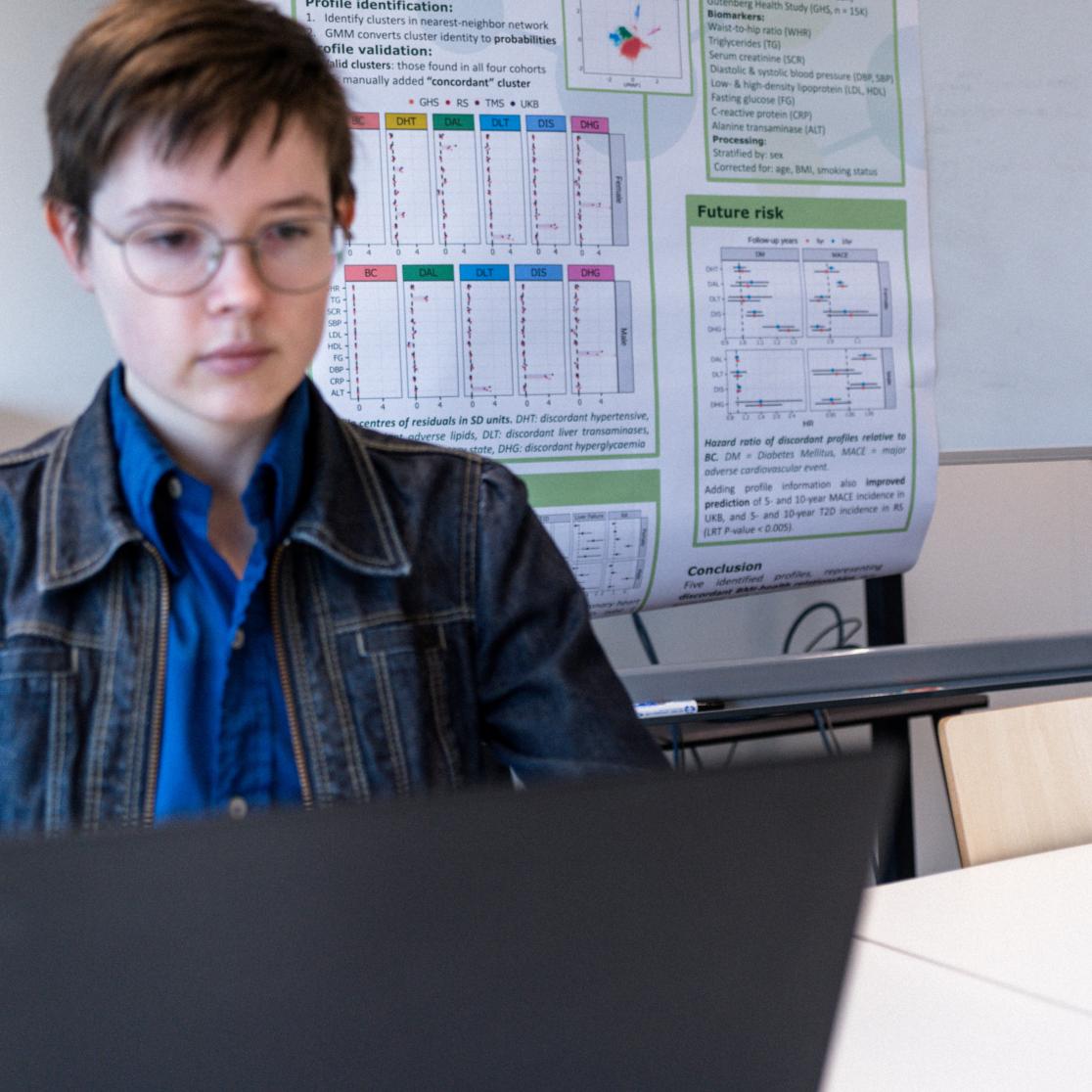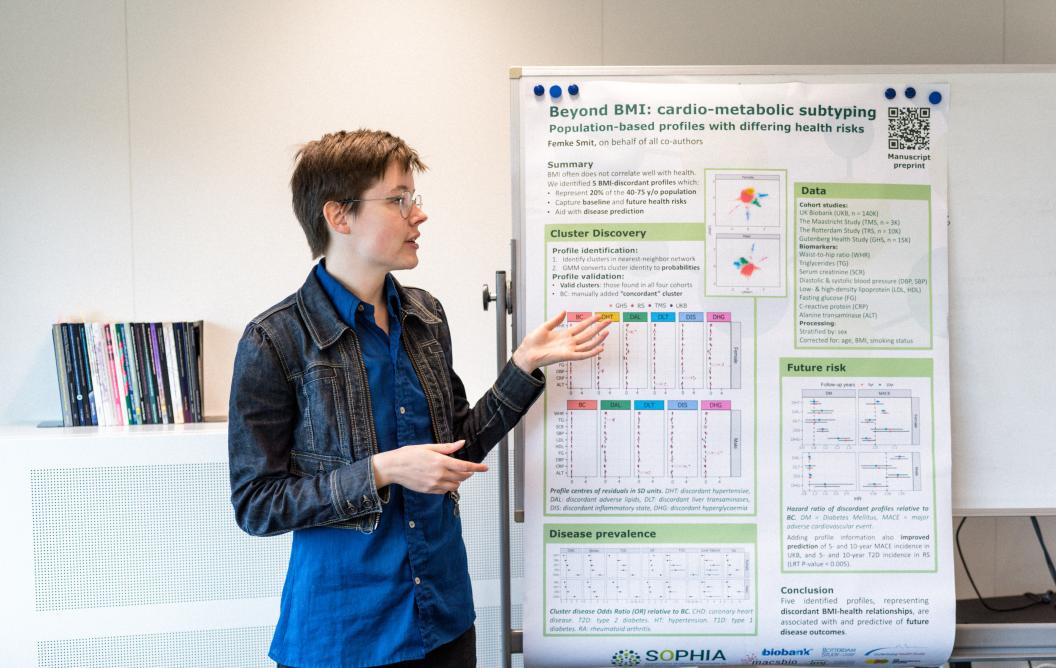A healthy weight, yet cardiovascular disease
Imagine having a healthy weight and still suffering a heart attack or stroke. Systems biologist Femke Smit is investigating the relationship between weight and health and is making some surprising discoveries. This week, together with her international colleagues, she is publishing her research in the prestigious scientific journal Nature Medicine.
After studying biology in Utrecht, Femke realised that working in a laboratory was not for her. “Subjects like systems biology and bioinformatics, where you create mathematical and computer models, appeal to me much more. Biologists often focus on specific details, such as the role of one protein or gene. I prefer to look at the level of organs or the body as a whole.”
After completing her master’s in Systems Biology in Maastricht, Femke decided to “stay put” in the city, as she phrases it. She started her PhD as one of the candidates in the European IMI SOPHIA project, which examines the relationship between obesity and health. Her workplace is the Maastricht Centre for Systems Biology at the Faculty of Science and Engineering.
Excess weight
It is widely known that being overweight is associated with a higher risk of diseases such as type 2 diabetes and cardiovascular diseases. A characteristic like excess weight makes it easy to identify risk groups for these diseases. Often, being overweight is accompanied by high blood pressure or elevated cholesterol levels. Preventive treatments exist for these conditions to avoid further complications. However, some people will develop cardiovascular diseases without risk factors such as being overweight. This group tends to fall through the cracks, as they usually do not receive preventive treatment.
Femke looked for clusters of people who had a different risk of cardiovascular disease or type 2 diabetes than expected based on their weight. She explored these clusters within a group of 173,000 participants from four large European cohort studies, including De Maastricht Studie from Maastricht University. “We used a network approach to visualise the data, creating clusters of people who are strongly connected based on similar biomedical characteristics. Then we grouped the people with a very strong connection, but only few connections to the rest of the network.”
Women
While the health of 80% of participants across the four cohorts matches their weight, this is not the case for 20%. “Our analysis identified five clusters. One particularly notable cluster consists of women with significantly higher blood pressure than you would expect based on their weight. We don’t observe this phenomenon in men, and so far, we cannot explain this gender difference.” Other clusters include people with a healthy weight but high cholesterol levels, poorer liver function, elevated inflammatory proteins in their blood, or high glucose levels.
Medical significance
So, what can be done with these research findings? “We are using our data to improve predictive models. Doctors use these models to assess who has a high or low risk of diseases. This helps them decide whom to treat or not. Thanks to our study, we can now better predict who is at increased risk of cardiovascular diseases. This means fewer people will be treated unnecessarily, and those at increased risk who were previously overlooked can now be identified.”
Gastric bypass
Femke is now working on a new study within the IMI SOPHIA project. “We compare the clusters of people we discovered with the outcome of their treatment. For example, people who have undergone gastric bypass surgery to treat obesity. Some lose a significant amount of weight afterwards, but others only lose a little weight. We are now trying to identify clusters of people for whom the gastric bypass will have lasting effects. We are doing the same for other treatments, allowing us to make personalised predictions about the most effective treatments.”
It will likely take another year or more before Femke completes her PhD. One thing is certain: her Nature Medicine publication, on which she is a co-first author, will be prominently featured in her thesis.
Text: Patrick Marx
Photography: Brian Megens

